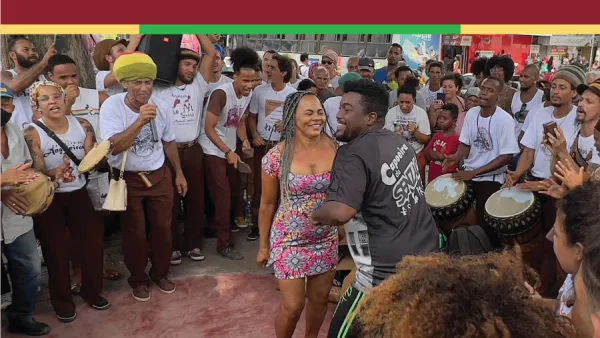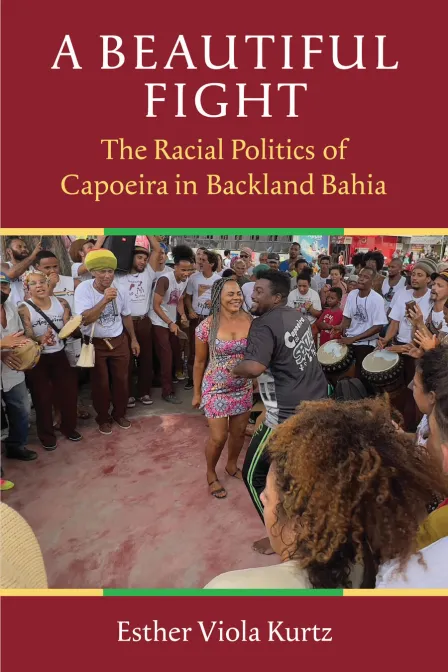Professor Kurtz’s research focuses on Afro-Brazilian music, sound, movement, and dance practices. She teaches courses on topics such as ethnographic methods, ethnomusicology, sound and dance studies, jazz, and American popular music.
Her first book, A Beautiful Fight: The Racial Politics of Capoeira in Backland Bahia, is now available for pre-order at University of Michigan Press on its Music and Social Justice series. The ethnographic study explores capoeira’s powerful potentials to motivate antiracist political action while also critically examining the implications of growing white participation in such a spiritual and political Afro-Brazilian practice. The book argues that white practitioners occupying space in capoeira divert attention from Black members’ concerns and reproduce colonialist logics of extraction, thus complicating claims that shared music/dance bridge difference and facilitate cross-racial unity. Yet while this hinders capoeira’s potentials to improve Black lives, the book proposes that capoeira nevertheless transmits knowledge, tools, and wisdom that can be leveraged to collaboratively contest racist coloniality and imagine a more just world. Her second book project extends her concerns about racial politics to consider how jazz musicians in St. Louis navigate the conditions of late racial capitalism to make a living, theorize their tradition, build community, and define their own value system.
Professor Kurtz has published in Women & Music, Ethnomusicology, Journal of the Society for American Music, and Conversations Across the Field of Dance Studies. She has presented at national and international conferences, including at annual meetings of the Brazilian Studies Association, the Society for Ethnomusicology, the Dance Studies Association, the Collegium for African Diasporic Dance, Analytical Approaches to World Music Conference, and the Society for American Music.
Courses:
Undergraduate:
Music, Sound and the Body
American Popular Music and Media
History of Jazz
Introduction to Ethnomusicology
Graduate:
Methods and Ethics of Music Ethnography



